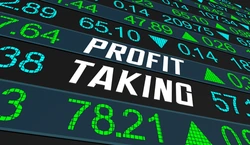Oil prices posted gains on Thursday after declining for three consecutive sessions, but industry watchers are pessimistic over a bullish sentiment anytime soon following rising COVID-19 cases in Japan and softened demand figures in Asia, the most populous continent.
Brent crude, against which Ghanaian oil is priced, gained 36 cents (0.5 percent) to $69.87 per barrel, while U.S. West Intermediate crude (WTI) was up by 29 cents, (0.4 percent) to $67.58 a barrel. Both contracts had fallen for three straight sessions.
Market reports showed that global oil demand was flung into more worries as Japan, the world’s third largest economy, extended its state of emergency in Tokyo and other major regions over fears of an increase in COVID-19 infections.
Moreover, oil data in China, the world’s biggest oil importer, also showed that daily crude processing slumped to its lowest in July since May 2020 as independent plants reduced production amid tighter quotas, high inventories and weakening profits.
On the supply side, government data said U.S. shale oil output is forecast to surge to 8.1 million barrels per day (bpd) in September, the highest since April 2020. OPEC and its allies are however against an increased output as they believe the market, currently facing dampened demand in several countries, including giant consumers, China and India, does not need more crude at the moment.
Iron and Copper
Iron ore and copper also tumbled into bearish territories as concerns over weakened Chinese steel production, weaker consumption data in the U.S and China, global growth risks and rising probability of reduced U.S. stimulus, disrupted metals markets.
According to market report, copper, considered an economic bellwether, declined as low as $8,8786.50 on Thursday, August 19. In addition, Iron ore was down 12 percent at $131.40 per tonne.
Gold Prices
Similarly, Gold prices also flung into bearish territory as the performance of the dollar lowered investors’ appetite gold.
A 0.4 percent jump in the dollar index resulted in spot gold shedding 0.1 percent to $1,785.48 per ounce, while U.S gold futures also plummeted 0.2 percent to settle at $1,785.80 per ounce.
Meanwhile, according to experts, Gold is very sensitive to any kind of move in the dollar. He added that the dollar’s recent rise is adding some pressure on the precious metal.
According to commodity analysts at HSBC, a British multinational investment firm, events in Afghanistan do not usually affect gold prices but the swift Taliban victory could have an indirect impact on safe haven assets, including bullion.
However, prices of other precious metals suffered bearish conditions too as silver lost 0.6 percent to close at $23.69 per ounce. Platinum was also down at 1.3 percent to settle at $1,009.44 per ounce, while palladium plunged 2.3 percent to $2,546.53 per ounce.
However, consumers and businesses in Ghana are waiting with bated breath to see how the global distortions in the prices of crude and these precious metals will affect their living conditions. Meanwhile, others fear Ghanaian authorities may soon increase fuel prices at the pump.
READ ALSO: Unilever’s Gain Continues as Trading activity Slumps on GSE





















